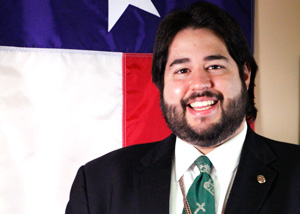I noticed a very disturbing trend on social media a few weeks ago following the Supreme Court’s decision to redefine marriage to include same-sex couples.

No, I don’t mean how everybody changed their profile pictures to be highlighted in a flag of some sort.
Everybody’s opinion on the subject of same-sex “marriage” was revealed on social media, and what I noticed was a tendency for many people to all of a sudden cut ties with people whom with they were once friends. This goes on both sides of the aisle.
We live in a polarized society, there’s no denying that. But the problem with this attitude, is it furthers this polarization. I saw many claims of bigotry, and I saw a comment on one thread from a woman who said she’d “unfriended” her brother because they disagreed on the issue, but it was “OK” since they live across the country and don’t talk very often, anyway.
I have a lot of opinions, and I do my best to form my conscience on the truths of Catholic teaching. This leads me to side with folks on both sides of the political aisle, depending on the issue. The fact that I form my political beliefs guided by my Catholic faith, in and of itself, offends people, again, on both sides of the aisle. If I were to “unfriend” anybody who disagreed with me on every topic, I’d literally have no friends on social media.
What is wrong with our society? Jesus warns us that He will turn brother against brother and family member against family member (Mt. 10:21). But He also challenges us to be a light to the world (Mt. 5:14-16). How can we be that light when we cut ourselves off?
I’m not going to use this column to go into detail why the Church is opposed to the Supreme Court’s decision. There are plenty of sources that explain the theological, spiritual and moral issues with same-sex marriage, as well as secular concerns about freedom of conscience.
Catholics have a responsibility to continue to witness to the truth. We cannot ghettoize ourselves into this little hovel where it’s safe to be Catholic, free from the judgments of the outside world.
What I will say, however, is we as Catholics have a responsibility to continue to witness to the truth. We cannot ghettoize ourselves into this little hovel where it’s safe to be Catholic, free from the judgments of the outside world. When I was in college, many students used to treat the Catholic campus center as a little “Catholic clubhouse” where they could let their Catholicism out, since they’d been holding it in all day on campus.
I’ve seen this same attitude on social media. We join “Catholic” groups, which is fantastic! We “like” Catholic pages and follow Catholic accounts (insert shameless plug for facebook.com/thecatholicsun and @thecatholicsun). But if we don’t take that to the rest of the digital continent, what good is it?
Fifty years ago, if Bill was a Catholic, Democrat, Sun Devils fan, but his neighbor, Will, was a Protestant, Republican, Wildcats fan, they’d still be friends – because they were neighbors. In this digital age, we can connect with those who share our values across the globe (which is awesome), but we neglect those right next to us because they’re “different.” We’ve made them “other” and in the process, dehumanized them.
My confirmation sponsor had the perfect post on how to approach this: “I’ll be glad to hear your thoughts …, but I would like to rewind talking about how this particular Catholic Christian thinks on it until we’ve had coffee together and can also talk about other things (cats, coffee, abortion, homemade soaps, co-habitation, MY wedding plans, racism, bees, tax breaks, TxDOT, contraception, shoes, etc.) If we can’t see each other as people, our words are futile.”
If we fail to see the humanity in our neighbor, in our opponents, if we fail to see Christ in them, we have failed. The only way we can change this world is to be witnesses of the New Evangelization, and not be afraid to engage the world, while not living of it.






